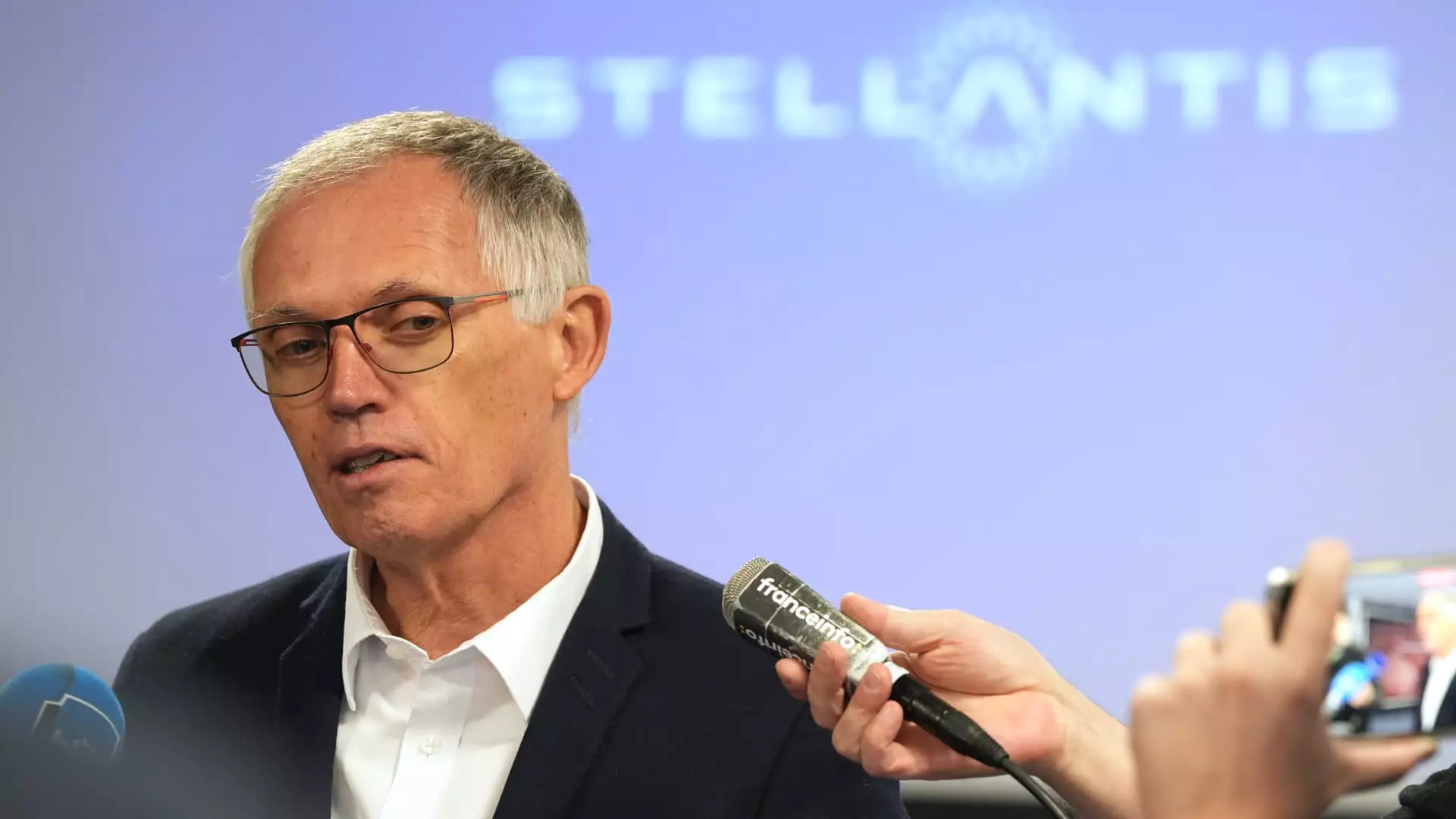In a high-stakes move that shocked the automotive industry, Carlos Tavares, the CEO of Stellantis, has resigned amid mounting tensions between him and the company’s board of directors. This unexpected announcement, made public over the weekend, revealed a disjointed relationship marked by “different views” that ultimately compromised the board’s confidence in Tavares’ leadership. The resignation is particularly striking given Tavares’ pivotal role in the formation of Stellantis through the merger of Fiat Chrysler Automobiles and PSA Groupe in 2021. His exit marks a significant turning point for a company that has seen inconsistent financial results under his stewardship.
Stellantis acknowledged Tavares’ departure, stating that the process for finding his successor is already underway, with expectations to finalize a new CEO by the first half of 2024. Until a permanent replacement is found, Stellantis will rely on an interim executive committee led by newly appointed chairman John Elkann. The board’s statement emphasized the importance of alignment between shareholders, the board, and the executive leadership, hinting at underlying issues that had developed over recent weeks.
Henri de Castries, Stellantis’ senior independent director, articulated the situation succinctly, underscoring how recent disagreements culminated in this abrupt decision. However, the board declined to elaborate on the specific circumstances that led to Tavares’ resignation, leaving many to speculate whether the rift was due to strategic disagreements, financial setbacks, or perhaps a culmination of both.
Tavares’ tenure at Stellantis was marked by both commendations and challenges. He was celebrated for guiding the company through a transformative merger, streamlining operations, and achieving significant cost savings purportedly totaling €8.4 billion ($9 billion). His approach emphasized aggressive cost-cutting, particularly in the supply chain and manufacturing processes, yet failed to yield the expected results this year.
Despite once being heralded as a visionary in the automotive realm, Tavares faced increasing scrutiny as Stellantis performed poorly in key markets, particularly the U.S. This mismanagement was exacerbated by a lack of new product investments, high consumer pricing, and drastic cost-cutting measures that left many employees and dealerships discontented. Share prices have plummeted approximately 43% in 2024, raising questions about the company’s strategic direction.
Tavares’ resignation comes closely on the heels of Stellantis lowering its annual performance targets and reporting a staggering 27% drop in third-quarter net revenues. The company’s financial struggles have highlighted a disconnect between executive decisions and market realities. With a significant reduction of workforce over the last several years—approximately 15.5%, or 47,500 positions—Tavares’ aggressive cost management tactics drew criticism not only from external stakeholders but also from within the company. Concerns regarding excessive cuts and their impact on operations had reportedly reached a boiling point, leading to unrest among executives and union members alike.
United Auto Workers (UAW), representing the interests of numerous employees facing layoffs, had previously called for Tavares’ exit, emphasizing the detrimental effects of his cost-reduction strategies. Similarly, Stellantis dealerships in the U.S. expressed dissatisfaction over bloated inventories and inadequate financial support, suggesting a widespread acknowledgment of systemic mismanagement.
With Tavares’ departure, Stellantis now faces the daunting task of navigating a complex landscape while searching for a new leader who can effectively reconcile shareholder interests with operational realities. Thus far, Stellantis has not disclosed the criteria for selecting the next CEO, but it is evident that a fresh perspective is crucial for addressing the internal discontent and revitalizing the automaker’s market performance.
The interim leadership under John Elkann must also reassure investors and employees alike that Stellantis is not only poised to correct its course but is also committed to innovating and investing in new products that meet consumer demand. As the company cautiously moves forward, the automotive world will be keenly observing which direction Stellantis takes next in this new chapter devoid of Tavares’ controversial yet transformational leadership style.

